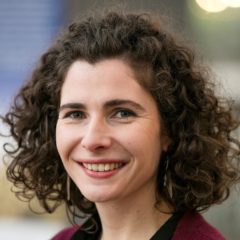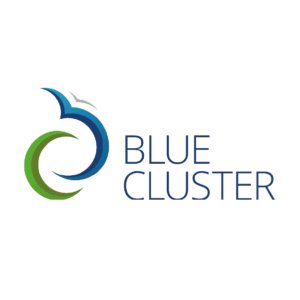Challenges and opportunities
Blue innovation for the delivery of the SDGs
Oceans capture CO2 from the atmosphere, sea level rises and storms will increase in force and frequency as a result of global warming. But as oceans cover 70% of the earth’s surface, they also provide a huge potential for large scale production of renewable energy (wind, wave, tidal, floating solar, etc.). Oceans can also counterbalance droughts and freshwater shortage by desalination installations. Moreover, clean shipping will be an indispensable element to come to a carbon neutral transport system and clean air in densely populated coastal regions.
With oceans and seas playing a major role in climate regulation, blue technologies are an important driver for economic growth with a clear shift towards innovative and sustainable solutions.
Conference programme
Oceans sessions
Watch our conference sessions. Sessions labeled were live-streamed from our studios in Brussels.
Oceans
Thematic session
The Blue Innovation Awards
27/10/2020, 17:00 - 18:30
Do you want to find out more about innovation initiatives in the blue economy in Flanders? Tune in to the Blue Innovation Awards, become acquainted with the different nominees and cast your voice for our audience award.
The Blue Innovation Awards is a Blue Cluster initiative to give exposure to promising projects, products and services within the fast-growing blue economy in Belgium. The award ceremony will be presented by Francesca Vanthielen and include a performance by Belgian soprano Astrid Stockman.
Meet our eight nominees:
Blue Innovation Wave (for SMEs):
- Nearshore Mussel Project (Brevisco)
- Real-time Undersea Cable Monitoring (Marlinks)
Corporate Blue Innovation Wave (for large companies)
- Dual-Fuel Hydrogen Engine (BeHydro)
- Marine Litter Hunter (DEME)
Blue Innovation Swell (for collaboration initiatives)
- A Hybrid Wave Energy Converter for ports – WEC4PORTS (IMDC, UPorto, INEGI and ECT)
- Coastbusters (ILVO, DEME, Jan De Nul, SIOEN Industries and VLIZ)
Blue Innovation Captain (for government institutions)
- Blue Accelerator (West Flanders Provincial Development Agency)
- Renovation of the seawall of Westende (Municipality of Middelkerke and Agency for Maritime and Coastal Services)
Have your say: the Inspirational Blue Wave award
You hold the power to decide the winner of our audience award. Which candidate inspired you the most? Which project do you believe makes it possible to achieve a sustainable blue economy with a positive environmental impact? Cast your vote (on site or online) at the end of the ceremony and tell us who you think deserves to win the first Inspirational Blue Wave Award.
About Blue Cluster
Blue Cluster is a network of innovative businesses that focus on the development and promotion of sustainable economic activities at sea. This network supports companies in a neutral manner in setting up partnerships with other companies, knowledge institutions and government bodies to develop and implement innovation projects. Blue Cluster also stimulates knowledge sharing and strives to increase societal support for the Blue Economy.
Oceans Energy
Deep dive session
The future of ports and energy hubs
27/10/2020, 15:15 - 16:30
The European Union intends to increase the installed offshore wind capacity to 450 GW by 2050, the hundredfold of the currently installed capacity. Ports are the gateway towards future offshore renewable energy hubs. They are essential for the creation of multifunctional renewable energy islands, the maintenance of offshore wind farms and the production of fuel. And since ports serve as the central hub for the shipping industry, their investments regarding offshore renewable energy will also be decisive for the shift towards a clean shipping industry.
Chaired by
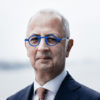
Marc Nuytemans
Blue Cluster
CEO
Marc Nuytemans is CEO of Blue Cluster. From January 2009 till November 2019, he was Managing Director of Exmar Shipmanagement and a member of the executive committee of Exmar, a Belgian listed maritime company. He lectures at the University of Antwerp on shipping and shipping management since 2000.
After an extensive career at sea, he became fleet personnel manager at CMB in 1997. In 2000, he took up the position of Managing Director of the Royal Belgian Shipowners’ Association, leading the revival of the Belgian register.
Marc Nuytemans is a member of the board of several companies and organisations, including BRABO (a company providing port services such as pilotage, mooring and unmooring), Caritas International (an NGO helping victims of war, natural disasters, migration and poverty in more than 200 countries and regions) and the Royal Belgian Shipowners’ Association, where he also serves as a member of the remuneration committee.
Building the Energy Port of the Future in Antwerp
Ports being the gateway towards on- and offshore renewable energy hubs and the central hub for the shipping industry, the choices they make will be decisive for the shift towards a clean shipping industry and for the energy transition in general. As one of Europe’s leading ports, the Port of Antwerp has an exemplary role to play in shaping the vision for effectively making the energy transition happen. Showcases of necessary actions on how to provide the ports and the incoming vessels with large-scale renewable energy and green fuels along with the impact on infrastructure and international cooperation, will provide an insight into the future-proof port.

Piet Opstaele
Port of Antwerp
Innovation Enablement Manager
As the innovation ‘enablement’ manager for the Port Authority, Piet Opstaele is one of the drivers of the digital and innovation transition in the Port of Antwerp. Based on a founded strategy with a pragmatic approach in executing concrete innovation projects, he makes the ‘Port of the Future’ tangible and leads the development of Port of Antwerp as an open innovation platform. On this platform, startups, companies, knowledge institutions and other authorities can create new value for the Antwerp port ecosystem.
In the 1990’s, Piet Opstaele started at Tele Atlas, a producer of digital geographic data and one of the most successful start-ups in the Benelux, acquired by TomTom in 2008. Between 2011 and 2014 he managed a consultancy firm and was closely involved in start-ups in the energy sector. Piet holds Master degrees in History and Spatial and Urban Planning, Post-graduates in energy and environmental management, and an MBA International management.
What if we could start tomorrow?
The European Network of Maritime Clusters can rely on decades of experience in the European offshore and maritime sector. This cluster is a strong mix of knowledge institutes, shipbuilders, shipowners, ports, suppliers and start-ups bringing innovative solutions into the industry. Capital is available, and new funds arise on the horizon. It is up to this generation to unlock the potential and work towards a blue economy.

Marjolein van Noort
European Network of Maritime Clusters
Coordinator of ENMC
Marjolein van Noort is an economist who started her career at the Dutch Ministry of Finance in the field of state-owned enterprises and international finance solutions. Her interest in the maritime industry led to a switch to the private sector where she worked for a shipbuilding company before joining the Royal Association of Netherlands’ shipowners. Besides that, she is the coordinator of the European Network of Maritime Clusters. The balance between government and private funding and the push for a sustainable maritime industry through innovation are two key themes in her career.
Challenges in offshore energy and importance for the maritime sector

Nathalie Oosterlinck
DEME
Head of Special Projects
Nathalie Oosterlinck is heading DEME Concessions, the offshore wind & renewable participations of DEME Group, representing 1200MW of offshore wind capacity. She is also leading the development of the first industrial-scale green hydrogen plant that DEME is developing together with other partners in Ostend (Belgium). She is responsible for Special Projects such as Energy islands and multi-use concessions areas.
From 2012 until early 2020, Nathalie Oosterlinck was CEO of RENTEL and OTARY. She has been a driving force in the set-up, management and development of Otary’s offshore wind concessions in the Belgian North Sea, totalling 800 MW since start-up. Nathalie has been active in the renewable energy sector for nearly 18 years, with executive management roles in project development, construction, financing & transactions and daily management of clean-tech projects. She has been active in the wind sector since 2010.
Nathalie Oosterlinck is member of the Board of Directors at the Belgian Offshore Platform and Advisory Board of Blue Cluster and takes an active role in advocating renewables, innovation and technology. She ranked 37 on the Top 100 Women Working in Wind – Women’s Power List, published March 2017, and ranked 38 on the European Power List 2019, Top 100 People in European Wind, published 2019.
Oceans
Deep dive session
Co-creating blue innovation
28/10/2020, 09:30 - 11:00
The technical and financial risks of large infrastructure projects dealing with challenges such as climate change, energy transition or population growth, get a substantial amount of attention during planning. Nevertheless, such projects often do not even reach the construction phase because social and spatial risks have been insufficiently taken into account. Especially for the development of multifunctional marine landscape infrastructures, it is imperative to implement co-creation processes to get support from both stakeholder authorities and the public.
Chaired by

Marijn Rabaut
Blue Cluster
International Marine Policy Manager
As an international marine policy manager, Marijn Rabaut works for the Blue Cluster as a strategic advisor and he contributes to several projects with a science-business-policy nexus. Being heavily involved in the development of the first legally binding Marine Spatial Plan (MSP) in Belgium (royal decree of 2014), he takes also the role of MSP expert within Blue Cluster.
Co-creating the resilient coastlines of tomorrow
The research study “Design for public value at sea” aims at creating a generic toolbox for the co-creative design of so-called MMLIs. These ‘Marine Multifunctional Landscape Infrastructures’ explore the potential of our seas and oceans in the transition towards a resilient coastline and sustainable society, considering elements such as floating aquaculture landscapes, coast-protecting ecological sandbanks or multifunctional islands to improve biodiversity.
Studies confirm that these landscape infrastructures are rarely realised due to the lack of spatial integration and public support. A toolbox for co-creative design combined with a co-creative strategy focused on guaranteeing economic and technical feasibility are therefore crucial to ensure a qualitative and integrated spatial design as well as public support.
All though research is still ongoing until the end of 2020, various conclusions can be already be drawn regarding a variety of topics. On their DNA-level (that is, performing as coastal protection), MMLI’s need a high degree of flexibility – which is often contrary to administrative procedures. On the co-creation level, commercial parties seem to be willing to learn opening the road for public-private ventures. On the functionality level, MMLI’s are not only very interesting for aquaculture, ecology, recreation and energy production. They are promising as well for large-scale energy storage. On the participation level, the value of using the generic toolbox is proven by case studies.

Alexander D’Hooghe
ORG
Director
Alexander D’Hooghe is an associate professor at MIT and a senior founding partner of ORG Permanent Modernity, the international design agency and think tank specialising in urbanism and architecture. His urban designs and analyses have included sites in New York City, Shenzhen, Belgium, The Netherlands, Iceland, South-Korea, Malawi, Ghana and parts of Russia, to name a few.
Alexander D’Hooghe is a former director of the MIT Centre For Advanced Urbanism (CAU), which focuses on the large-scale complex urban issues of our time. In 2007, he obtained a PhD from the Berlage Institute in 2007 at the T.U. Delft. He previously obtained a Master’s degree in Urban Design from Harvard in 2001, and a Master’s degree in Architectural Engineering from the University of Leuven in 1996.
During his professional career, Alexander D’Hooghe worked with several internationally renowned architects, including Rem Koolhaas and Marcel Smets. One of his most recent achievements is the successful co-creation process ‘Over de Ring’ which joins thousands of citizens and experts to co-create the future mobility of the City of Antwerp.
The changing seascape
Humanity has always made use of the sea for travel and fishing and globally 30% of oil is produced offshore. But the dedication of huge areas of ocean to human activity is new. Projections indicate that offshore wind farms will take up a quarter of some Member States waters by 2050. We need to think of this as an opportunity not a threat. Alongside the turbines we can generate hydrogen or grow seafood. But we must not only ensure that this will not affect biodiversity goals but that the public understands that this is the case. This mean careful monitoring before, during and after installation and FAIR (findable, accessible, interoperable, reusable) access to the ensuing data; not only to government agencies but also to the communities that may be affected. The presentation will show what the EU is doing to ensure that this happens.

Andreea Strachinescu
DG MARE EC
Head of Unit DG MARE A1
Andreea Strachinescu, Head of Unit Maritime Innovation, Marine Knowledge and Investment in the Directorate General for Maritime Affairs and Fisheries, is responsible for promoting innovative and emerging technologies and solutions, and ensuring broad dissemination of marine knowledge and research. The Unit fosters innovation and provides policy input to Horizon 2020, future Horizon Europe and to smart specialisation strategies and it aims to create a better understanding of the ocean resources and advocate their sustainable use. It is also in the lead for providing policy input to the investments strategies for the blue economy.
Prior to this position, Ms. Strachinescu was Head of Unit responsible for New Energy Technologies and Innovation in the Directorate General for Energy, European Commission, in charge with the development of policy and actions on non-nuclear energy research and innovation.
Space users and User’s space: fine-tuning multiple uses at sea
Traditional approaches to marine spatial management draw rigid boundaries around ocean features and resource users. However, the ocean is in constant flux. Especially for mobile features (species, users, infrastructures), a stationary approach often leads to a mismatch in the rate and scale at which the ocean and the marine users’ behaviour changes.
Moving towards complementary dynamic ocean management practices takes into account the highly dynamic nature and responds to these rapid changes through the integration of (near) real-time data. To upscale the application of dynamic ocean management practices, we need to tackle several challenges. The benefits include a more effective and faster decision-making for space users, and increased effectiveness and efficiency in (multiple) uses of space, by fine-tuning the spatial and temporal scale of managed areas.

Ann-Katrien Lescrauwaet
VLIZ
Director of International Relations
Dr Ann-Katrien Lescrauwaet studied zoology (MSc, University of Ghent) and Management of Protected Landscapes (University of Wales-UK). She obtained a PhD degree in Marine Sciences at UGhent, on the topic of Marine Historical Ecology and Fisheries. After her graduate studies she was engaged (20 years) in fieldwork in support of the conservation and protection of marine ecosystems. She worked on these topics in Belgium, Azores, Peru, Venezuela, and Chile, in particular working towards solutions to mitigate the impact of fisheries on marine life. In 2004 she joined the Flanders Marine Institute VLIZ, as head of the ‘Policy Information Division’ since 2006. This unit supports a science-based implementation of an Integrated Maritime Policy by strengthening the marine knowledge basis, the science-policy interface, and by actively brokering policy-relevant scientific information in appropriate format. Target groups are the broad range of policy officers (multiple levels and domains), marine researchers (multiple disciplines), and the Blue Economy and Innovation sectors. Currently she is Director of International Relations at VLIZ.
Belgium’s voyage to a new marine spatial plan
A success story about multi-use, cocreation and intensive cooperation with the broad stakeholder-network.

H.E. Philippe De Backer
-
Former Belgian Minister of North Sea
Philippe De Backer (41) obtained a PhD in Biotechnology from the University of Ghent and an MBA from the Solvay Business School
Prior to being elected in the European Parliament, De Backer worked as Technology Transfer Officer at CRP-Santé and as an analyst at Vesalius Biocapital (a Luxemburg based venture capital firm specialised in life sciences). He has experience in valorization of IP developed by public research institutes and in establishing starting ventures in life sciences.
De Backer was a member of the European Parliamant from 2011 till 2016. He was a member of the ITRE commission (Industry, Technology, Research and Energy), the ECON Commission (Economic and monetary affairs) and the TRAN Commission (Transport by land, sea and air).
On the 2nd of May 2016 became a member of te Belgian federal government as State Secretary responsible for the fight against Social Fraud, Privacy and the North Sea.
On the 9th of December 2018 De Backer was promoted to minister and became also responsible for Telecom, Postal Services, Digital Agenda and Administrative Simplification.
In march 2020 De Backer was made responsible for the taskforce, charged with the management of medical aids and medicines in the fight against the coronavirus
As a liberal-democrat, De Backer believes that it is his duty to take up responsibility in the society. He is committed to work actively for that society and for the people living in it. He has strong beliefs in individual liberty, self-development, free markets and equal opportunities for all.
Keynote speaker
Oceans
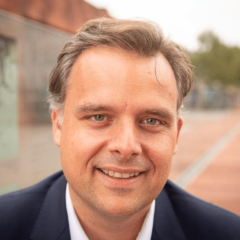
Speakers
Oceans
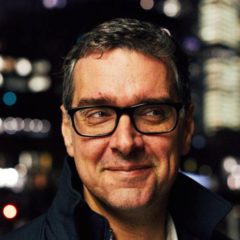
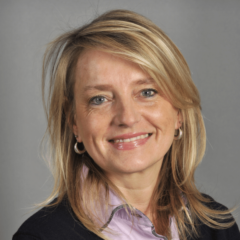
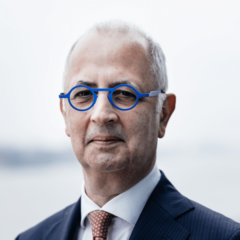
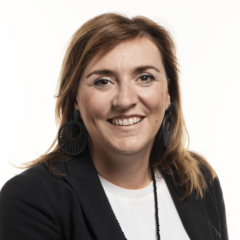
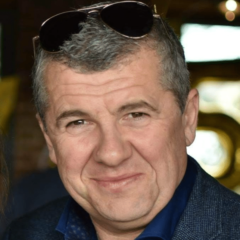


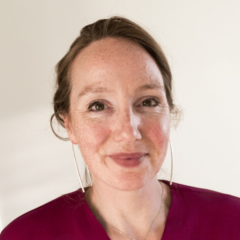
Thematic session
The Blue Innovation Awards
With oceans covering 70% of the earth’s surface, they provide a huge potential for large scale renewable energy production. And as oceans and seas play a major role in climate regulation, blue innovation can contribute significantly to the delivery of the SDGs while being an important driver for economic growth at the same time. The Blue Innovation Awards, an initiative of Blue Cluster, give exposure to promising projects within the fast-growing blue economy. Representatives of all selected projects will introduce their project.
Deep dive sessions
Multi-use and co-creation within offshore infrastructures
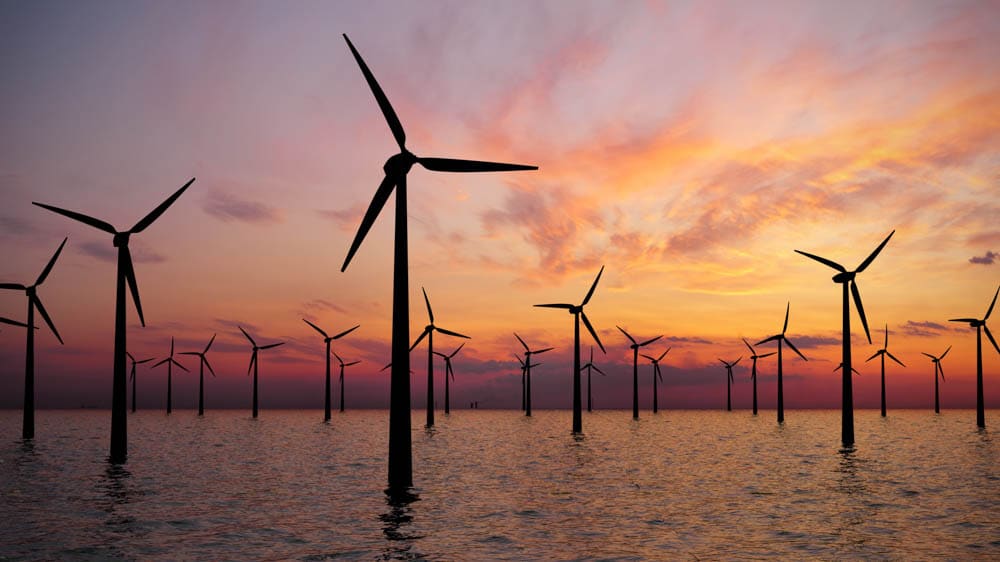
The future of ports and energy hubs
The European Union intends to increase the installed offshore wind capacity to 450 GW by 2050, the hundredfold of the currently installed capacity. Ports are the gateway towards future offshore renewable energy hubs. They are essential for the creation of multifunctional renewable energy islands, the maintenance of offshore wind farms and the production of fuel. And since ports serve as the central hub for the shipping industry, their investments regarding offshore renewable energy will also be decisive for the shift towards a clean shipping industry.
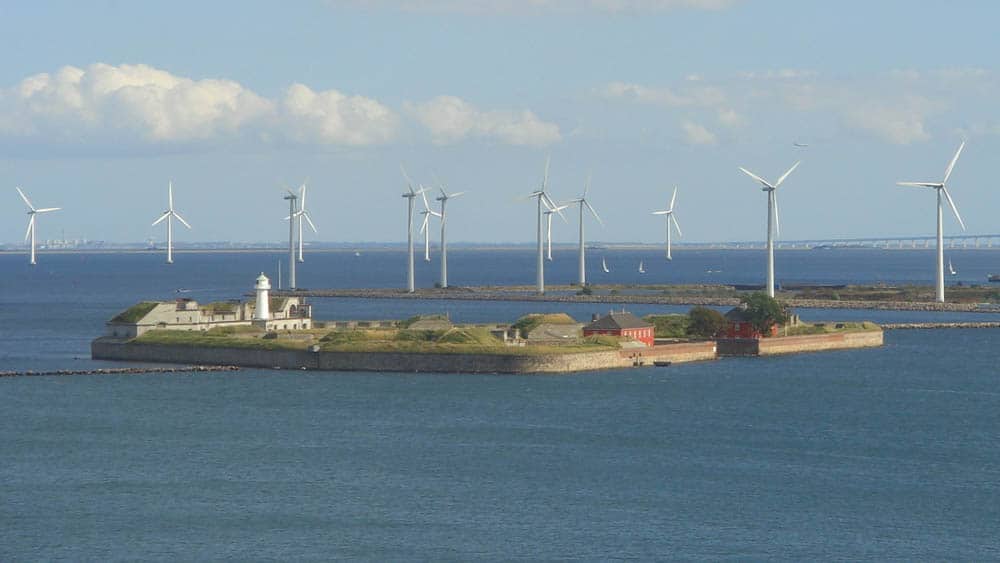
Co-creating blue innovation
The technical and financial risks of large infrastructure projects dealing with challenges such as climate change, energy transition or population growth, get a substantial amount of attention during planning. Nevertheless, such projects often do not even reach the construction phase because social and spatial risks have been insufficiently taken into account. Especially for the development of multifunctional marine landscape infrastructures, it is imperative to implement co-creation processes to get support from both stakeholder authorities and the public.
Thematic coordinators
Oceans

